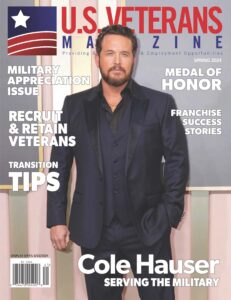In today’s competitive environment, every owner must take advantage of any opportunity to differentiate their company from the competition.
Supplier diversity certifications for disadvantaged businesses are an often-overlooked option with great potential. Qualifying companies include those with veteran, minority, LGBTQ+ or women owners, as well as those in historically underutilized business zones, or HUBZones. These certifications grant access to private-sector opportunities and contracts with local, state, and federal government agencies that want to do business with a diverse pool of suppliers.
Certification History
According to “A History of Corporate Supply Chain Diversity” (WEUSA 4 [2020]: 95), certification programs were born out of the U.S. Civil Rights Movement and guided by legislative mandates enacted to end discrimination that gave large businesses a disproportionate share of opportunities. The program flourished in 1969, when the Office of Minority Business Enterprise was established to provide guidance and support. In 1978, the Small Business Act re-categorized minority businesses as socially and economically disadvantaged and required federal agencies to comply with new goals for federal contracts.
In the 1990s and early 2000s, new legislation fostered the advancement of federal contracting opportunities to businesses in HUBZones and those owned by women, veterans, service-disabled veterans and members of the LBGTQ+ community. Today, as more companies invest in diversity, equity and inclusion efforts, the demand for diverse suppliers will only increase.
How Certifications Benefited Our Company
The owner of Black Box Safety, Jackson Dalton, is a military veteran who was disabled while serving in the U.S. Marine Corps. That status could put a small business owner at a disadvantage, but it qualified Black Box Safety for certifications and network memberships that introduced us to new and otherwise inaccessible clients.
Certification with the National Veteran-Owned Business Association (NaVOBA) gives us access to special events (such as its recent Marching Forward Monday) and networking connections that resulted in at least $90,000 in contract wins in the company’s first year of certification. Black Box also received NaVOBA’s 2021 Disabled Veteran’s Business Enterprise of the Year award.
Certification with Disability:IN led to our nomination for the organization’s Pitch Perfect Challenge. We presented our pitch to a panel of experienced judges and took first place, landing a five-figure prize and a subsequent feature in a November 2021 Forbes article. Black Box also served on the Re-Imagining Your Business from 2020 Learnings conference panel, which put us in front of potential clients such as Bristol Myers Squibb.
Membership in the Veterans in Business (VIB) Network connects us with private entities, third-party nonprofits and federal contractors through conferences and events. Through VIB alone we secured at least one new regular customer per quarter, and we also increased our visibility as general-session presenters on supplier diversity at the 2021 VIB National Conference.
Black Box Safety put time, money and energy into engaging with these organizations, approaching each with a sense of how our goals and values align with theirs. That investment paid off not only in great opportunities — putting our name in front of Disney, Shell Oil, T-Mobile and other market giants — but also motivation to reach and exceed our own expectations.
The Process
When applying for diversity supplier certifications, begin with the end in mind. Define your target market and evaluate which certifications that market will value. For example, if you manufacture garden and patio decor and want to expand distribution, consider certifications accepted and valued by big-box retailers. NaVOBA certification puts you in front of their corporate sponsors, which include Lowe’s Home Improvement. Many large buyers post a list of accepted certifications on their website, and you can also ask them directly.
Next, evaluate honestly which certifications best reflect the status of your company and whether you meet their requirements. Certification is a rigorous process managed by government agencies or third-party agencies that advocate for the development of disadvantaged-owned businesses. Each has its own conditions, but most require a business to be at least 51 percent diverse-owned. Some require that the owner be a U.S. citizen or permanent resident. The application process does have associated costs, and you should also set aside time to navigate the documentation, screening, interviews and on-site visits needed to prove that your company is qualified.
For businesses that qualify, the advantages of obtaining diverse supplier certifications far outweigh the costs of earning them. Business partners admire this classification, and certification is alluring to diverse supplier programs. It is not an easy process: it takes not only time and money, but also perseverance and patience to earn these certifications. However, for Black Box Safety, diverse supplier certifications opened doors enough to be well worth the effort and hard work.
Source: Black Box Safety



